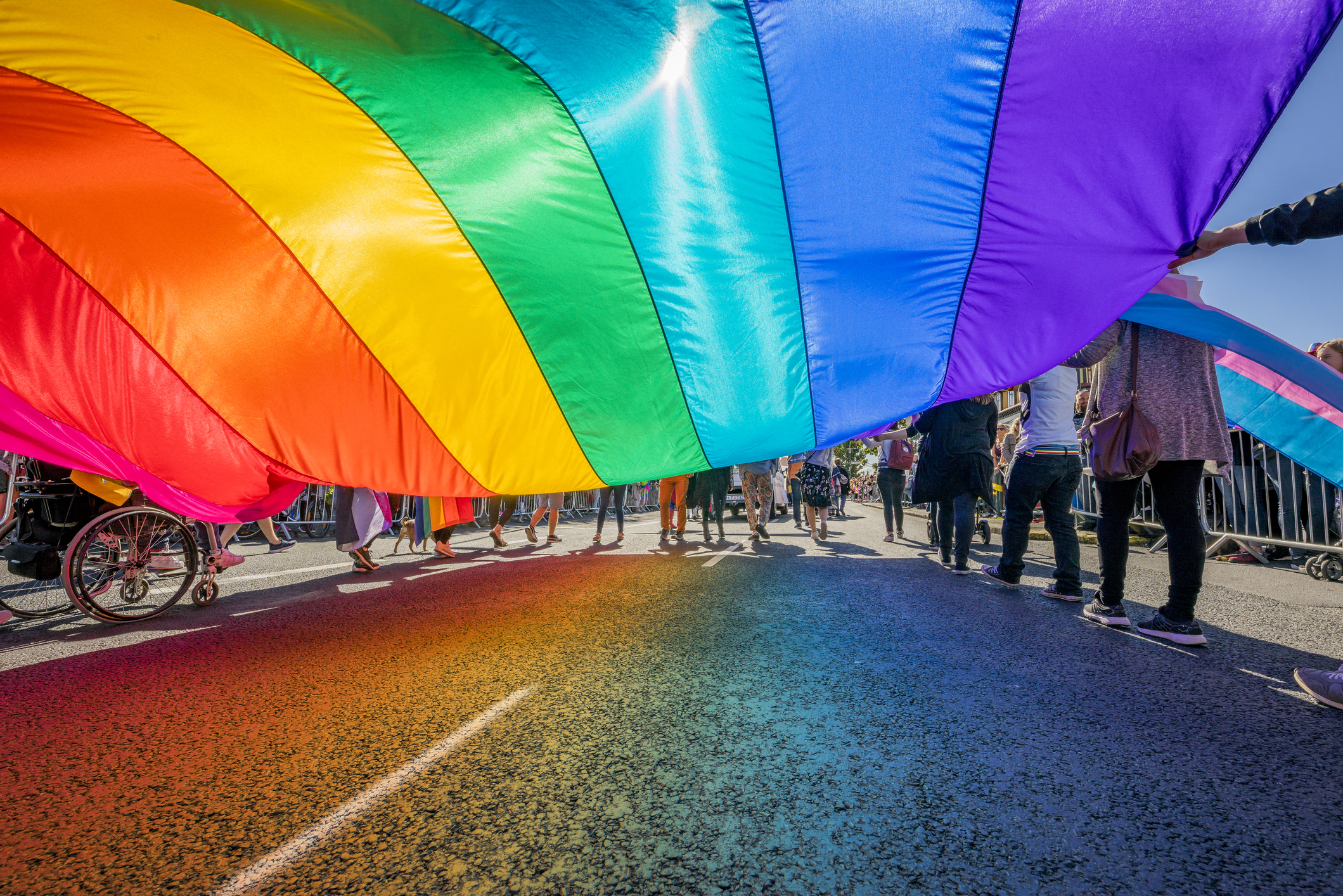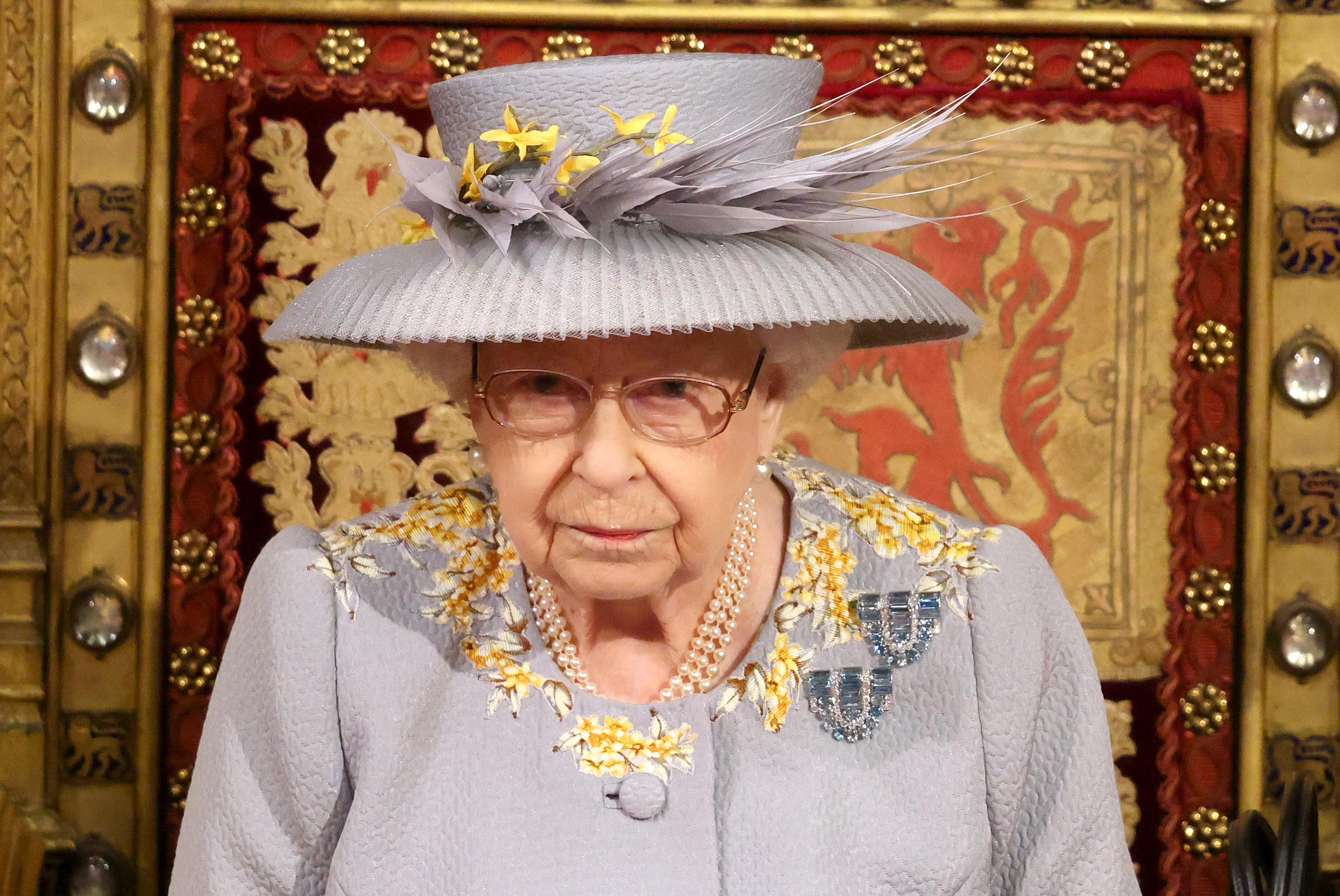Why it's vital to ban conversion therapy sooner rather than later
5% of the LGBTQ+ population have experienced pressure to undergo some form of conversion therapy in their lifetime.

5% of the LGBTQ+ population have experienced pressure to undergo some form of conversion therapy in their lifetime.
Earlier this month, the Queen announced that the UK would be introducing legislation to ban conversion therapy.
Not entirely sure what it entails? According to the Stonewall website, conversion therapy is is the term used to describe 'any form of treatment or psychotherapy which aims to change a person’s sexual orientation or to suppress a person’s gender identity'.
The site goes on: "It is based on an assumption that being lesbian, gay, bi or trans is a mental illness that can be ‘cured’."
Your sexuality isn't a mental illness. And yet, sadly, a 2018 report by the charity found that 5% of the LGBTQ+ population have experienced pressure to undergo some form of conversion therapy in their lifetime. "I believe the real figure may actually be far higher," explains Owen O'Kane, leading psychotherapist and Sunday Times bestselling author. "Many LGBTQ+ people have been convinced or encouraged in some way to seek help to change who they really are."
No one should ever have to feel pressured to 'cure' their identity. Being who you are is a basic human right.
Keep reading as O'Kane's breaks down the new legislation, the main hurdles that may get in the way of it passing, and an insight into why it's so essential the law gets passed sooner rather than later.
Conversion therapy: why pushing through the ban is important
So, what does conversion therapy include?
According to O'Kane, broadly, it’s a series of treatments offered to change someone’s sexual orientation or identity.
Marie Claire Newsletter
Celebrity news, beauty, fashion advice, and fascinating features, delivered straight to your inbox!
"There are a number of known treatments including medical, psychiatric, psychological, therapeutic or religious interventions," he explains.
Within a religious context, he shares, conversion therapy might involve prayer as a way of ‘healing’ sexuality (or 'praying away the gay'). "Some of the more extreme reports have included electric shocks, healing ceremonies or even exorcisms," O'Kane adds.
"The underlying message of conversion therapy is that LBTQ+ people are fundamentally wrong or sinful."
"In my experience, it's not confined to the therapy room. Within a religious context, for example, these beliefs are pushed during sermons or even within confessionals. I personally experienced this as a Catholic," O'Kane says.
What does the new conversion therapy legislation state?
This is where it gets a little confusing.
As of yet, it doesn't exist. The Queen and the government have simply said that conversion therapy will be banned in the near future.
The ban was originally promised under Theresa May's government in 2018, and so supporters of the ban are understandably aggravated that three years later, it still hasn't been made official.
Before the law is passed, government figures have said they need to hold a period of consultations to ensure the law doesn't restrict people's freedom of speech.
"They say that these consultations are aimed to protect freedom of speech and religious liberties, but many activists opposed to conversion therapy are understandably angered by these delays because these therapies are known to cause significant psychological harm," explains O'Kane.

When will the ban actually happen?
Good question - but sadly, no-one knows the answer to this yet.
"Consultations are still ongoing - but in my view, these delays are unacceptable and have been justified under the banner of freedom of speech and religious freedom," O'Kane expresses.
He argues that these excuses don't stand. Why so? "Psychological damage to any group of people is unacceptable and the government needs to step up here. Yes, everyone is entitled to a view, but when that view causes significant harm to another, its credibility is weakened," he explains.
So, why is the conversion therapy ban so important?
Making conversion therapy illegal would have far reaching effects, says the psychotherapist. "It impacts anyone who values the importance of acceptance and inclusion."
He continues: "As a psychotherapist, I am very confident that when you tell someone their sexuality or identity is wrong, flawed or in some way bad, then you inflict psychological damage. This position is echoed by the Royal College of Psychiatrists, too, who share that it can be both harmful and unacceptable.
"It's well documented that members of LGBTQ+ communities are significantly more prone to mental health issues," O'Kane explains.
"Conversion therapy, at its core, is shaming and judgemental."
"The detrimental impact on mental health is unquestionable. Challenging this practice and making it illegal is not only essential, but humane," he adds.
So, does O'Kane see anything getting in the way of the conversion ban happening?
In a word: absolutely. He reckons that both religion and rigid views could stop the legislation from passing. "Some evangelical, religious and other groups have strong views on sexuality and will try to oppose the ban, I've no doubt," he shares.
O'Kane's advice for anyone opposing the ban who believes in conversion therapy? "I would encourage you to reflect on the harm you are causing and look at the evidence. In the last Stonewall report alone, 50% of LGBTQ+ individuals have been depressed in the last year," he goes on.
Bottom line: change must come soon before further damage is caused. "If we participate in denying people to be who they are, we don’t allow them to live fully. In my opinion, that's a travesty," he shares.
Ten Times Happier: How to Let Go of What’s Holding You Back by Owen O’Kane, published by HQ, is out in paperback on 27th May, updated to include a new chapter on resetting after tough times.

Ally Head is Marie Claire UK's Senior Health and Sustainability Editor, nine-time marathoner, and Boston Qualifying runner. Day-to-day, she heads up all strategy for her pillars, working across commissioning, features, and e-commerce, reporting on the latest health updates, writing the must-read wellness content, and rounding up the genuinely sustainable and squat-proof gym leggings worth *adding to basket*. She also spearheads the brand's annual Women in Sport covers, interviewing and shooting the likes of Mary Earps, Millie Bright, Daryll Neita, and Lavaia Nielsen. She's won a BSME for her sustainability work, regularly hosts panels and presents for events like the Sustainability Awards, and is a stickler for a strong stat, too, seeing over nine million total impressions on the January 2023 Wellness Issue she oversaw. Follow Ally on Instagram for more or get in touch.
-
 Ties are the unexpected cool-girl accessory to invest in this season
Ties are the unexpected cool-girl accessory to invest in this seasonSchool is in session
By Sofia Piza
-
 This is not a drill: you can now shop Alexa Chung's actual wardrobe on Vinted
This is not a drill: you can now shop Alexa Chung's actual wardrobe on VintedOwn a piece of sartorial history
By Penny Goldstone
-
 New Look’s spring collection has dropped—as a picky fashion editor, I’m seriously impressed
New Look’s spring collection has dropped—as a picky fashion editor, I’m seriously impressedSpring trends at affordable prices
By Jazzria Harris